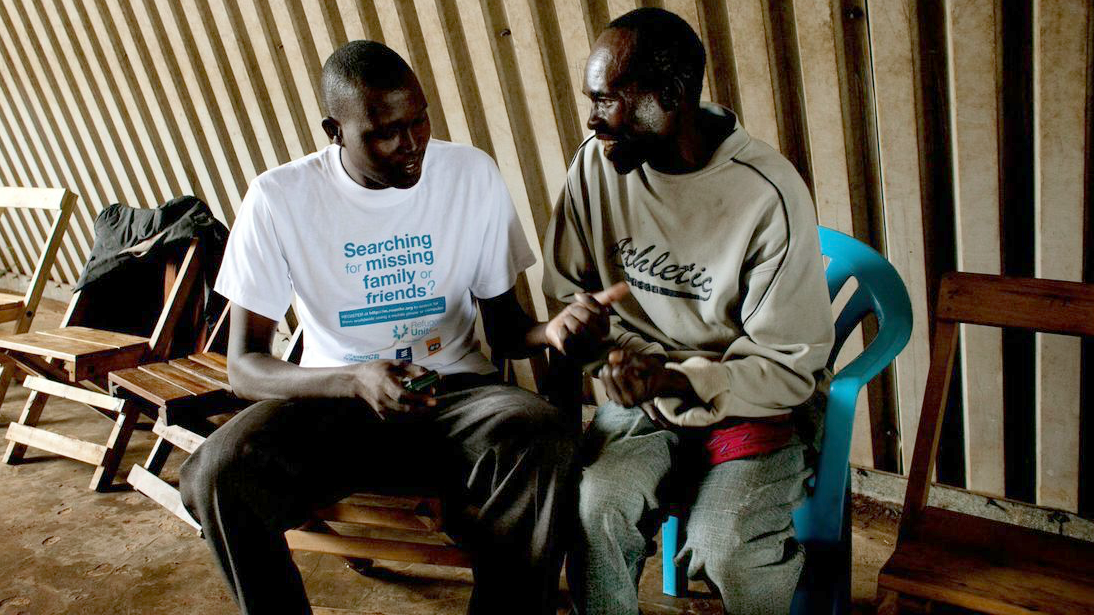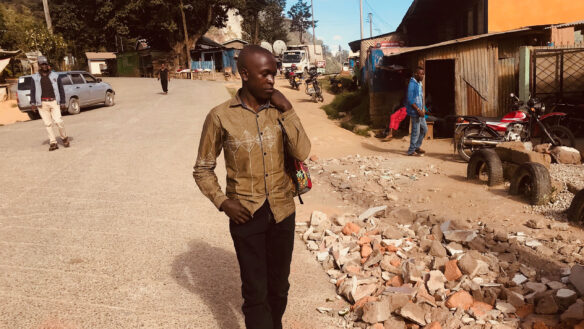Aid organisations often have difficulties reaching refugees with information, not least because they often lack access to smartphones – and if they have access many cannot afford data for their phones. Moreover, some refugees, especially women, elderly, and other vulnerable groups, are illiterate and cannot access vital information, such as information about a missing family member, an upcoming agency-driven health check effort, or a governmental refugee census exercise that enables refugees to keep their official registration status. Another challenge for organisations working in these communities is building trust since people tend to put trust in local community leaders and people they know.
Working in off-grid landscapes, focusing on Democratic Republic of Congo, Kenya, Somalia and Uganda, REFUNITE, supported by H&M Foundation, used a hybrid of analogue and digital channels to search for missing people and create effective solutions for communication. By leveraging cultural community leaders that already play an important role REFUNITE turned these leaders into central nodes who could act as proxies for creating trust and enabling communication towards far-off communities. Around 7,000 such community leaders were added to this project.
The main innovation of this project is how REFUNITE blended an understanding of technology and culturally specific community structures to approach local community problems. The hybrid approach, mixing online with offline methods, allowed them to push vital information to millions the most disconnected society members and also gives them a stake in solving their community problems. Through a mix of their call center, local Whats app groups for community leaders, facilitation of on-ground meetings, and wide-reaching SMS campaigns, REFUNITE have been able to support not only family re-connections across communities but also spreading information about community-specific topics.


